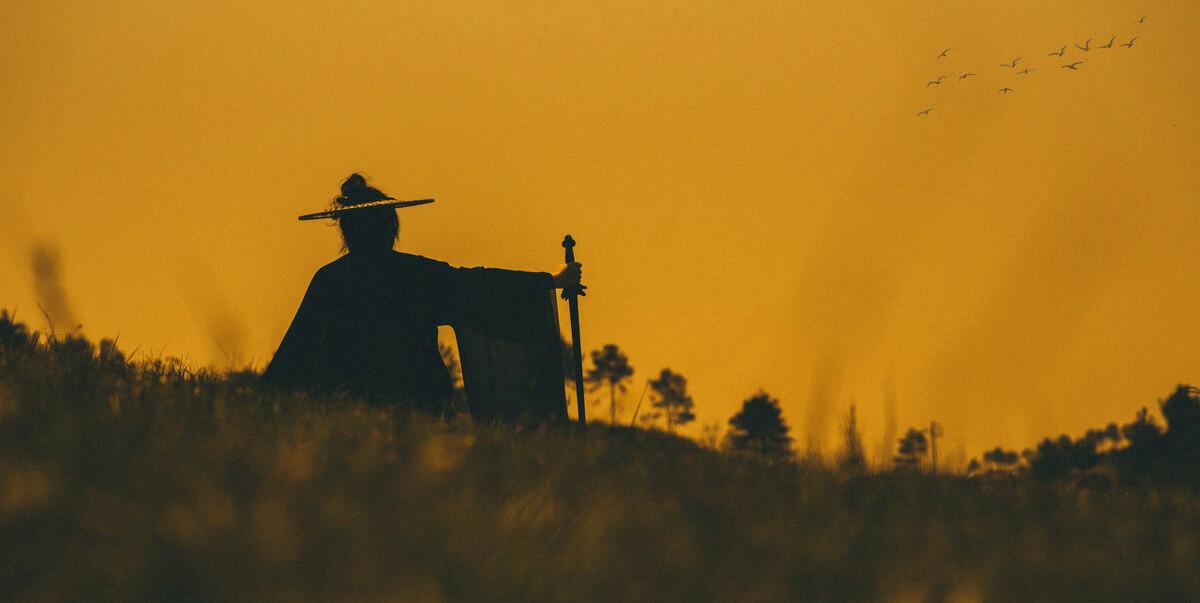The land of fireworks in the city, the forest of silent wilderness, the cold light of sword shadows everywhere, and the story of happiness and revenge are spread everywhere. Chivalrous culture is deeply rooted in the hearts of Chinese sons and daughters, influencing generations of Chinese sons and daughters, and we can't help but ask: Who can be called a hero?

What is a "man"?
Once on the land of China, heroes, everywhere. They are happy to take revenge, and good and evil are clearly distinguished. "Brush up on the clothes, hide deep and famous" is their truest interpretation, but also for them to cover a veil of mystery.
To explore their origins, we must go back to the war-torn era of the Spring and Autumn Warring States. With the gradual collapse of the Ida system, the sub-feudal system since the Zhou Dynasty was destroyed, the mobility between classes increased, the differentiation of the scholar class also accelerated, the civil and military paths were divided, and the samurai in the warrior class were attached to the politicians and became the assassination tools for the politicians to achieve their goals.
These samurai, after receiving appreciation and favor, would also die generously for the orders of their masters. As the saying goes, a soldier dies for the pleasure of himself. Sima Qian mentions in the Chronicle of History:
His words will be believed, his deeds will be fruitful, his promises will be sincere, he will not love his body, and he will go to the misfortune of a soldier, and he will survive and die, but he will not be ashamed of his ability, and he will be ashamed of his virtue, and there will be enough to cover.
These people are the original "heroes". The Chronicle of History contains a special record of these heroes from the Assassin Rangers column. I believe that many friends have some understanding.
The development of Xia was in the early Han Dynasty, when the imperial court used the Huanglao way to govern the country, advocating rule by doing nothing and allowing the people to rest and recuperate. Due to the inaction of the imperial court, civil disputes, thieves and thieves increased sharply for a time, and the hero was developed in this context.
At this time, not only were the heroes developed by the pre-Qin warriors, but also the so-called "men of cloth clothes", "men of Lu Alleys" and "heroes of Pifu", who relied on their martial arts to perform righteous acts in the countryside. It has become an important force in grassroots governance and effectively alleviated grassroots contradictions.
After Emperor Wu of the Han Dynasty came to power, he changed the inaction rule of the early Han Dynasty and began to actively govern the country. Tuien Ling, abolish the feudal state; send a general to defeat the Xiongnu; strike a hundred families, honor Confucianism.
Grassroots governance is also becoming more and more sound, and chivalrous guests have lost the soil that can exist. Chivalry's influence was gone, and chivalry was criticized as Confucianism became the official mainstream.
Ban Gu says in the Book of Han:
Establish momentum, be a weifu, make personal friends, and stand in the strong world", "strangle the wrist and ranger, with the four hao as the head." So the renegade of the party was agreed, and the righteousness of the duty was abolished", so that the Ranger's "crime is beyond reproach."
Unlike Sima Qian, Ban Gu gave a completely negative evaluation of the Ranger, which was related to the different backgrounds and positions of the two.
After the Eastern Han Dynasty, China entered an era of great division. The absence of a unified and powerful central government led to the competition between the heroes and the clouds, and the chivalrous actions of the Wei and Jin dynasties were as frequent as in the pre-Qin period, and they showed more complex characteristics.
Moreover, the Wei and Jin dynasties were also an era of great national integration. Since the Eastern Jin Dynasty, the north of the Yangtze River has fallen under the iron horses of nomadic peoples, forming a chaotic situation of Wuhu Chaohua. This made the people more militaristic and the Rangers more active.
Time came to the Sui and Tang Dynasties, and China ushered in a period of unification, so what new characteristics did the heroes of this period present? Let's discuss it in the next issue.